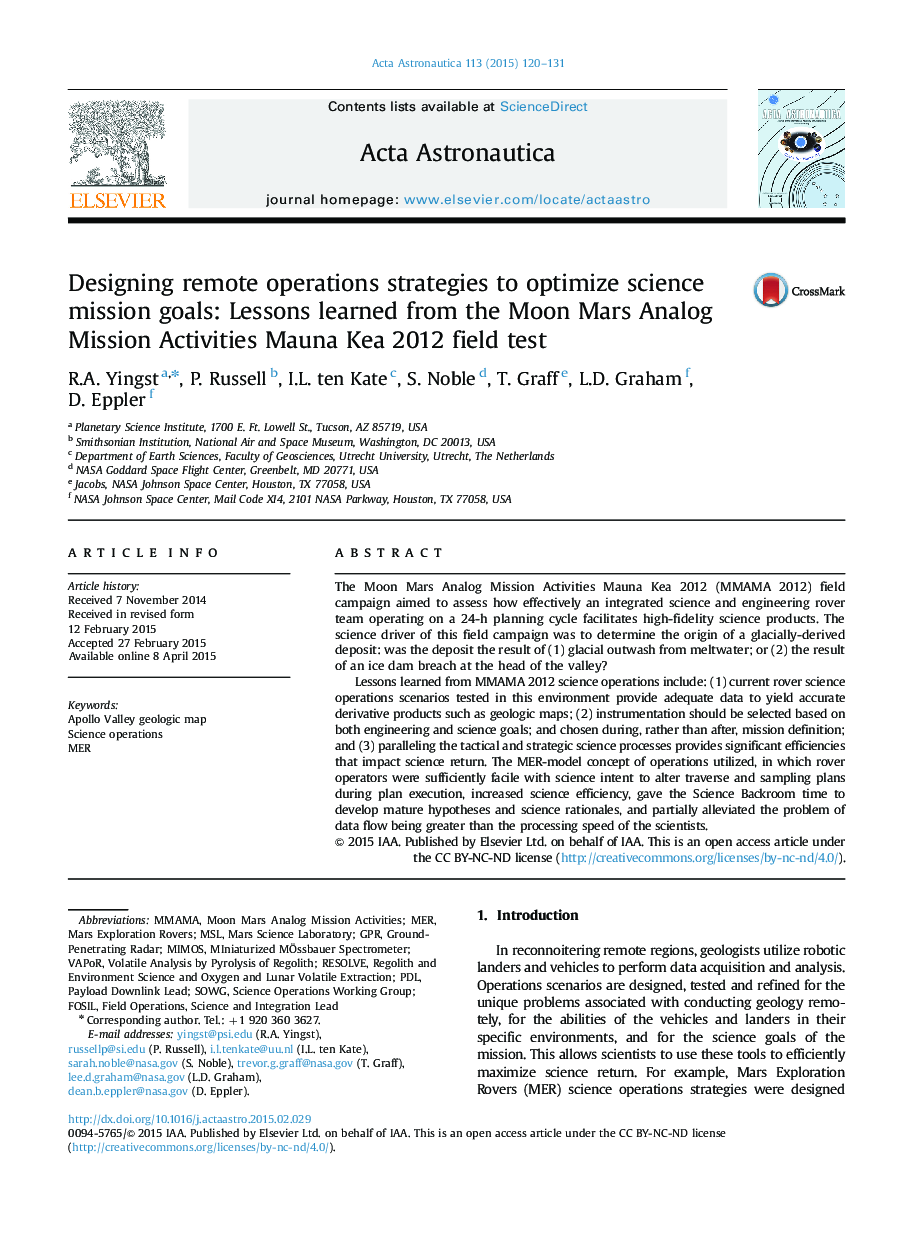| Article ID | Journal | Published Year | Pages | File Type |
|---|---|---|---|---|
| 8056538 | Acta Astronautica | 2015 | 12 Pages |
Abstract
Lessons learned from MMAMA 2012 science operations include: (1) current rover science operations scenarios tested in this environment provide adequate data to yield accurate derivative products such as geologic maps; (2) instrumentation should be selected based on both engineering and science goals; and chosen during, rather than after, mission definition; and (3) paralleling the tactical and strategic science processes provides significant efficiencies that impact science return. The MER-model concept of operations utilized, in which rover operators were sufficiently facile with science intent to alter traverse and sampling plans during plan execution, increased science efficiency, gave the Science Backroom time to develop mature hypotheses and science rationales, and partially alleviated the problem of data flow being greater than the processing speed of the scientists.
Keywords
Related Topics
Physical Sciences and Engineering
Engineering
Aerospace Engineering
Authors
R.A. Yingst, P. Russell, I.L. ten Kate, S. Noble, T. Graff, L.D. Graham, D. Eppler,
